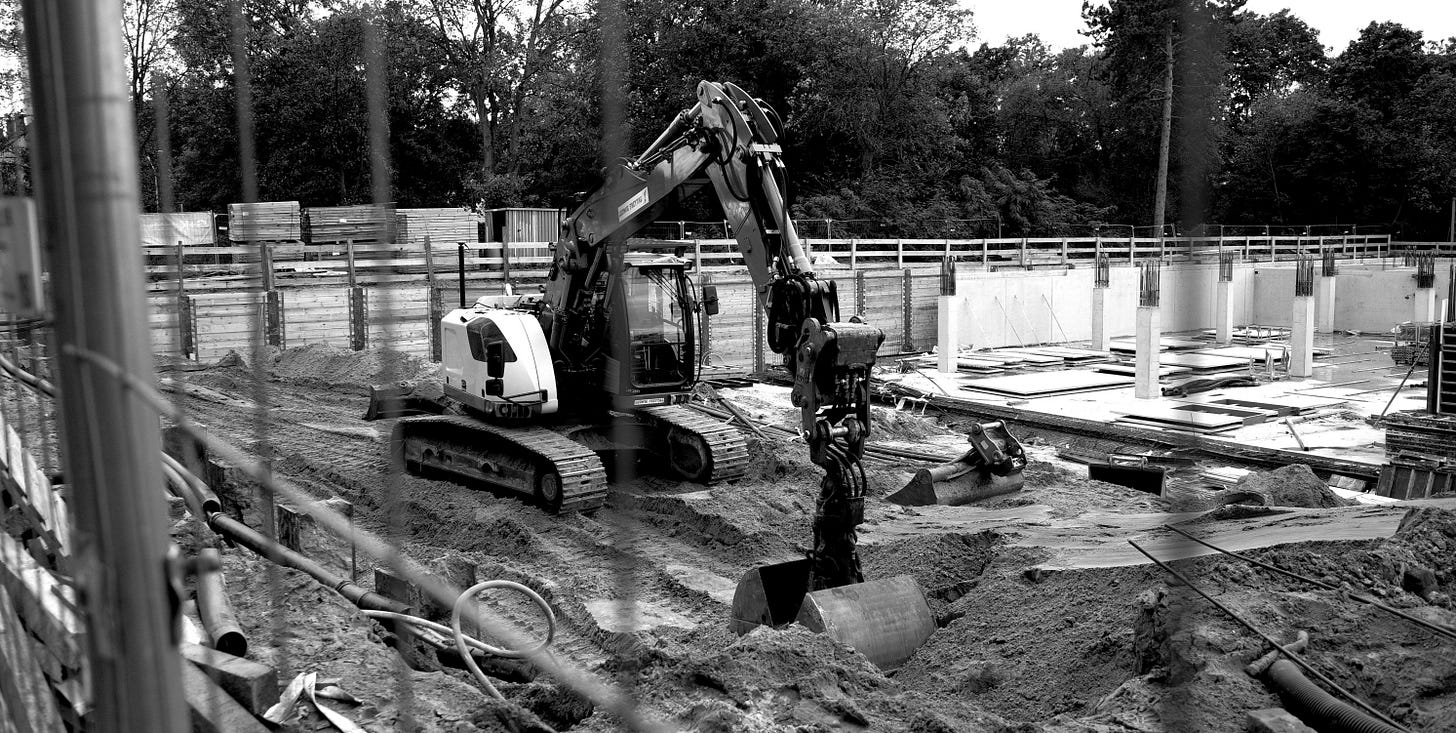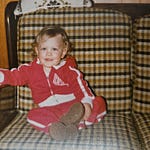
For three decades, I believed that my childhood was devoid of loving physical touch and the consistent play that comes from being in joy. That story reinforced the idea that while some family members may have loved me, my mother’s inability to love had eclipsed any positive experiences I may have had.
I was wrong. I had been telling myself an inaccurate story.
In preparing for my first therapeutic MDMA session, I pulled out the dozen or so photos from my childhood—photocopies given to me by one of my aunts before she passed last year. I wanted them on my altar so the little version of me could be present—seen, visible, and taking up space—in the room.
Before my practitioner even arrived, I began to notice something striking: nearly all of the photos of me from birth until about age seven were taken at my maternal grandparents’ house.
I look so happy in those pictures, especially when I’m with my aunts and uncles, all young adults then. There are photos of me and my brother with my grandfather—watching TV together in the kitchen or lounging on him like a comfy chair as he sat on the backyard patio.
Between those photos and the insights that arose during MDMA therapy, I felt something significant shifting inside of me—as if the stories that had shaped my identity were being gently reorganized.
Then, a few days later, a conversation with my dad helped everything click into place. For the first time, I was ready to receive and accept the truth: my earliest years—from birth to seven—were marked by love, affection, adoration, and play. The evidence is right there in the photos, in my face, and in my body language.
The story that my mother saw me as the little version of herself whom she hated may have been true—but even if it was, that wasn’t about me. The rest of her family, along with my father, were thrilled that I had come into the world. They loved me simply for being me. Clearly, I felt their care, warmth, joy, and devotion at that age.
Everything did change when my grandfather died—when I was seven—and that entire side of my family eventually devolved into darkness in various ways. It’s true that I was unsafe in my own home because of my mother until I left at sixteen. And it’s also true that I had once been loved in a healthy environment.
For some reason, this was the excavation I needed at the exact moment I needed it. This realization has unearthed many others—not only about my past, but about how it has shaped my identity and the way I move through the world.
Most importantly, I’ve come to see how the unconscious strategies I’ve relied on throughout my life are no longer serving me, no matter how reliable or grounded I’ve seemed on the surface.
My Own Hero
My therapist says, “To heal your soul, your heart must break.”
Now, I can see how my heart breaks for so many people in the world. And while I know I can’t help everyone, I have subconsciously doubled down on those few people in my life for whom my heart truly aches.
In particularly difficult moments, I’ve leaned in and wanted to save these people—offering comfort, solutions, generosity, and love. But behind the scenes, it’s my seven- to sixteen-year-old self reaching out: the part of me who never had a hero, still hoping to rescue herself from her mother’s projections, painful words, and physical abuse.
I needed to feel my own heartbreak—fully, and it’s not done yet—in order to begin healing the foundation of my identity. In many ways, it feels as though I’m in the midst of pouring a new foundation.
It’s a long process: deep digging with heavy machinery, the chaos of mud when it rains, the leveling of the ground, the careful layout, and then the pour.
This time, though, the foundation won’t be made of concrete. The substance is lighter, more flexible, and kinder to its environment. It will be able to bear the weight of multiple truths while remaining rooted, grounded, and adaptable—no matter the winds of change.
Already, I can feel the difference. I can navigate difficult conversations with less dissociation and without abandoning my younger self. I can see situations with greater clarity, no longer filtered through the eyes of a hurt or scared child.
This foundation I’m pouring is nothing like the one I inherited. It’s being mixed with truth, compassion, and the memory of joy that was always there beneath the rubble. Each realization—each breath of self-recognition—strengthens it. It doesn’t demand perfection or permanence; it invites movement, expansion, and trust.
I can feel it holding me, not as something to stand on but as something to grow from. The weight of my past no longer feels like a burden to carry but a root system that steadies me.
Now Available: More Life
What’s emerging is not a version of me built to endure, but one free to live. The ground beneath me feels alive—responsive, forgiving, resilient. I am no longer rebuilding what was lost; I am remembering what was always true. And in that remembering, I can finally rest in the knowing that I was loved from the beginning—and that love, not pain, is what I’m building my life upon now.
Provisionality comes naturally to me, so it’s easy to offer my presence, labor, money (even when I don’t have much), or anything else someone might need. Going forward, I will be able to discern whom to support and how to offer my care from a clean, grounded place. I will not lean into offering unless there is a request. When I am asked, I will filter my response through my current capacity and value system.
Now, over to you. What stories about your childhood have quietly defined how you see yourself—and how certain are you that they’re true? If you were to pour a new foundation for your life, what truths or qualities would you mix into it? And finally, what becomes possible when you stop existing from pain and building from love?










